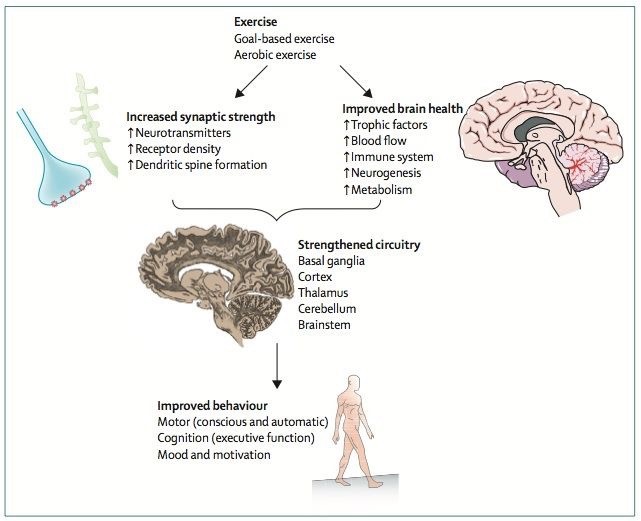Undergraduate perspective on Sports & Exercise Medicine – a BJSM blog series
By Fiachra Maguire (@Fiachrama)
The annual Spring Study Day forms part of the Faculty of Sports Medicine in Ireland’s (@FSEM_IRL) educational series. Now in its third successive year, the event aims to provide a mix of sports related pathologies and more clinically applicable exercise medicine.
The standard was high in both presentation and content. For those at preliminary stages, the short feedback sessions provided some additional insight on study design. The abstract booklet, with details on each talk is available to view here.
Take-home messages of the 3rd Annual FSEM Ireland Spring Study Day:
An Introduction to the MedEx Program — Dr. Brona Furlong
- MedEx is a chronic illness rehabilitation programme utilising exercise with parallel educational and related supports.
- Primarily consultant led referrals from local hospitals due to specialisation for chronic illnesses.
- HSE (NHS equivalent) evaluation of the programme, for feasibility of a national implementation is underway.
- 12-Month duration Single Arm Observational Trial. Non-Controlled due to ethical consideration of withholding treatment to ill populations where evidence shows exercise to be of benefit.
Experiences with Exercise in Cancer Patients — Dr. Lisa Loughney
- Treatment for Cancer, Chemotherapy and Surgery, are both significant risk factors for mortality and post-operative complications. Resulting in an increased risk of death pertinent at 3 years.
- Stratification based on CardioPulmonary Exercise Testing allows a more accurate (patient specific) assessment of risk.
- Facilitates a collaborative decision making process.
- The role that Exercise Training can play in “dual hit” neoadjuvant cancer treatment and surgery; safe and feasible but a need for more controlled trials.
(Read more here — Loughney et al., 2016) - Read a systematic review of how exercise is beneficial to cancer patient’s quality of life here
Exercise and Nutrition – Interplay in Chronic Illness — Mr. Conor Kerley
- Significant interplay between some of the top risk factors for morbidity and mortality worldwide.
- Nutrition related risk factors have risen to prominence in the last ten year period, versus physical inactivity, which has remained relatively static.
Exercise and the Brain; Applications in Neurodegeneration — Professor Tim Lynch

- Prevailing theory that exercise results in increased connectivity for reserve & resilience
- Investigations in rat models of Parkinson’s Disease utilising forced exercise demonstrate that the ‘lazy’ rats pathological findings were consistent with PD, versus the running rat.
- Structural change in the connectivity in the basal ganglia of the exercised PD rats; more efficient in processing dopamine than the unexercised.
- Read more here — Petzinger et al., 2015
- Fascinating case report on Exercise and Progressive Multiple Sclerosis.
- Combined with pharmacological management, the patient initiated a physiotherapist prescribed exercise intervention.
- Stringent adherence to the regime and augmentation with a wearable activity monitor has precipitated significant & rare improvements in symptomatic scoring.
- Read an editorial piece on the cognitive effects of exercise here or click the following link to read about the effects of aerobic exercise on neural plasticity here
Hypertension and Exercise — Dr Eamonn Dolan
- Exaggerated hypertensive response to exercise is abnormal.
- High Blood Pressure is always a negative.
- Within day variation contributes to inaccurate assessment. Nocturnal blood pressure of increasing clinical utility due to 24-hour monitoring.
- Gold Standard is 24-hour Ambulatory Blood Pressure Monitoring; see BHSoc for details on validated devices.
- Read more here from BJSM — Physical activity and exercise lower blood pressure in individuals with hypertension: narrative review of 27 RCTs
Exercise and Pulmonary Arterial Hypertension — Professor Paul McLoughlin
- Exercise training improves exercise tolerance in PAH.
- Magnitude of improvement on 6-Minute Walk Test in line with pharmacological intervention.
- Improves Quality of Life scores.
- Accompanied by significant incidence of transient adverse effects [10 – 15%], such as syncope, which necessitates medical supervision.
There will be plenty more to listen to and learn from at @FSEM_IRL’s next event, which is the Annual Scientific Meeting (@FSEM_ASC2016) taking place from the 15th to 17th of September. The special topic is the Female Athlete and the scope will be similarly broad, from performance to clinical medicine.
More information is available here.
Note that both *Student Discount* and *Early Bird Pricing* exists, making the invitation increasingly difficult to decline.
*************************************************************************
Fiachra Maguire (@Fiachrama) is a medical student of Trinity College Dublin, Ireland. He has a healthy interest in sports and exercise medicine and is currently undertaking an MSc research project on gait & cognitive impairment.
Dr. Liam West (@Liam_West) coordinates the “Undergraduate Perspective on Sports & Exercise Medicine” Blog Series.
If you would like to contribute to the “Undergraduate Perspective on Sports & Exercise Medicine” Blog Series please email LIAMWESTSEM@HOTMAIL.CO.UK for further information.